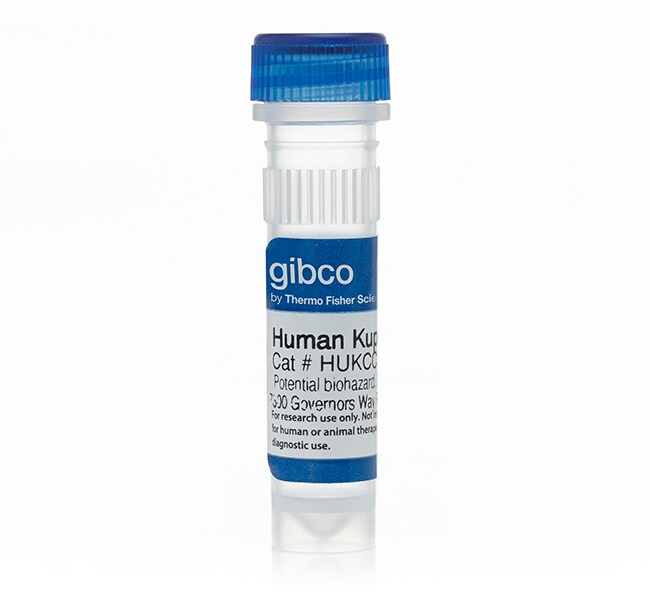
Cryopreserved Human Kupffer Cells are isolated from adult human livers. Each vial contains a minimum of one million viable cells. These easy-to-use cells provide a convenient way to produce hepatocyte and Kupffer cell co-cultures for the study of various hepatic functions.
• Viability routinely >90%
• Purity routinely >90%
• Respond to activation with lipopolysaccharides (LPS)
• Minimum 1 million viable cells per vial
• Protocols for hepatocyte co-culture available
Kupffer Cells Provide for Improved Physiological Modeling
Growing evidence shows that under both normal and pathological conditions, many hepatocyte functions are regulated by substances released from neighboring non-parenchymal cells (NPC). These cells, particularly Kupffer cells, play an important role in the modulation of xenobiotic metabolism in the liver. Kupffer cells secrete potent mediators of the inflammatory response that controls liver inflammation. These cytokine mediators control hepatocyte metabolic rates through direct interactions with phase I and phase II enzymes. Kupffer cell and hepatocyte co-cultures can self-assemble within 72 hours of treatment with pro-inflammatory cytokines or LPS, and can function by effectively modulating P450 expression, thus giving a more physiologically relevant result. Studies indicate that co-culture of hepatocytes with NPCs better represent both normal liver physiology as well as disease states.
| Code | Description |
|---|---|
| HUKCCS | Catalog Number: HUKCCS |

